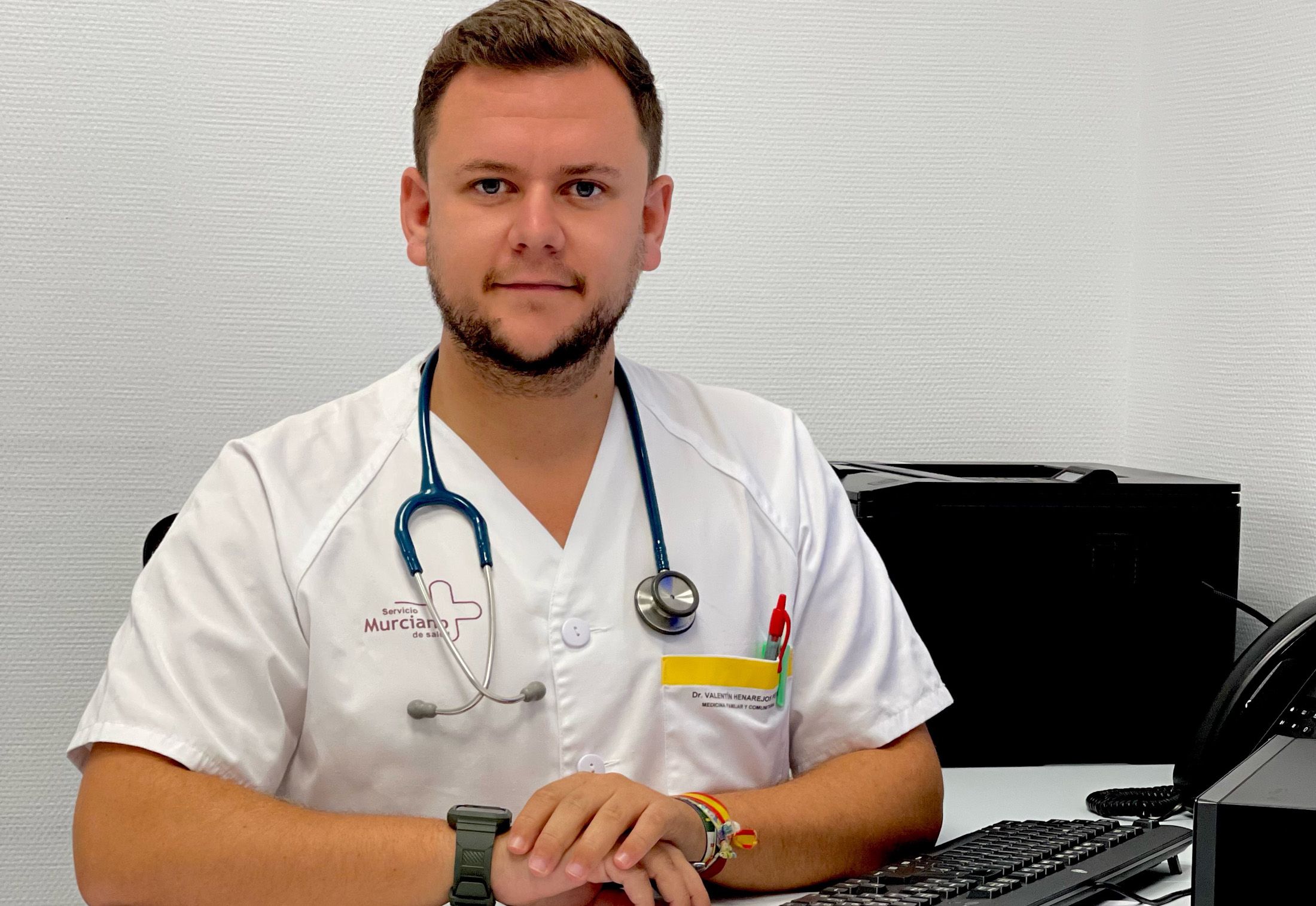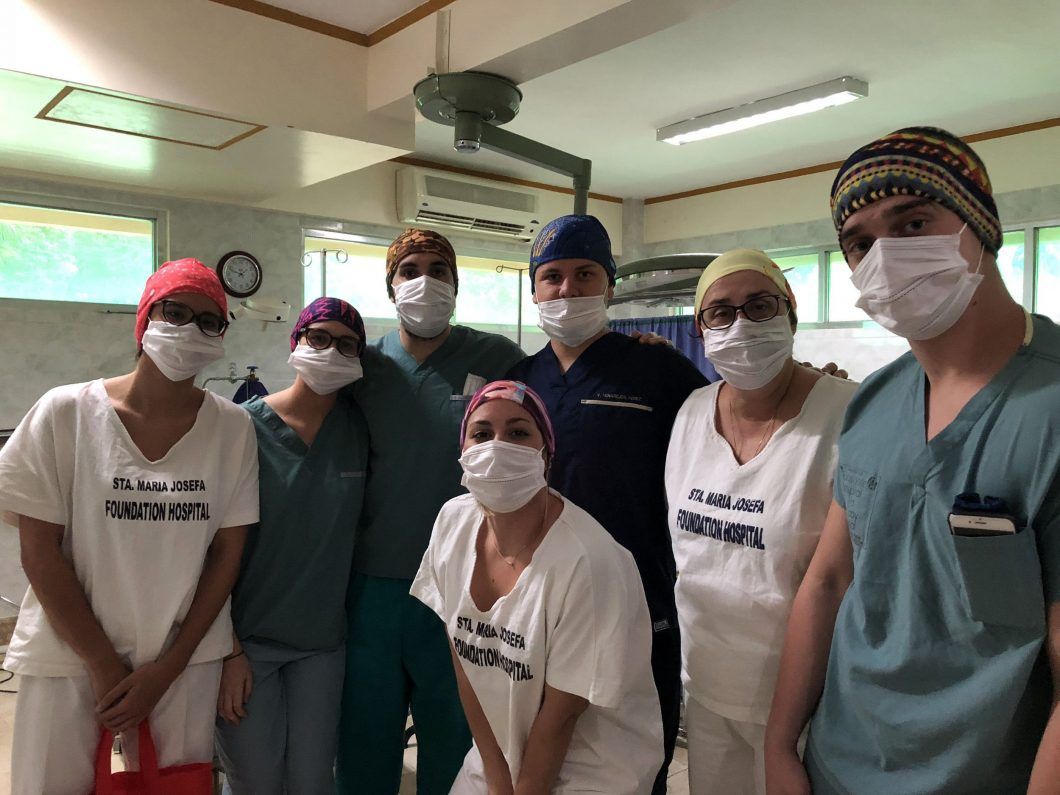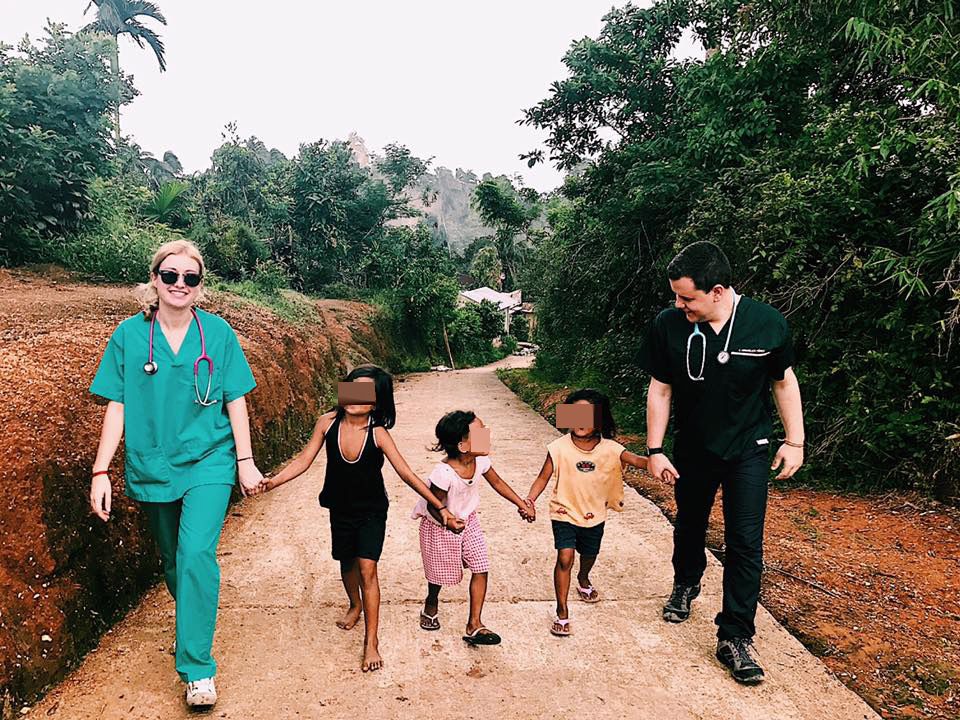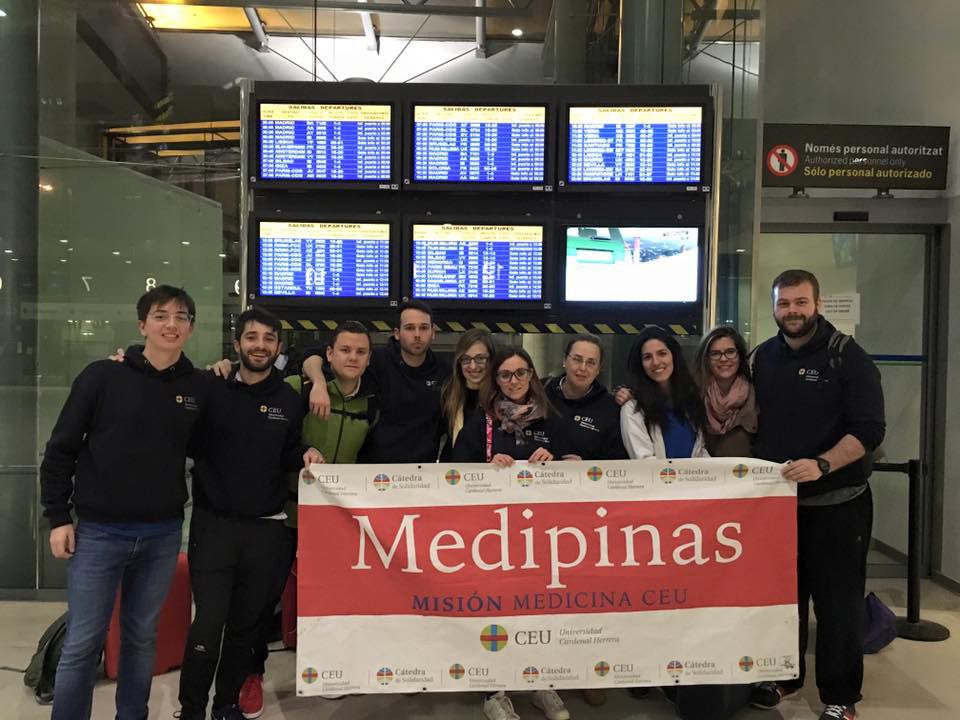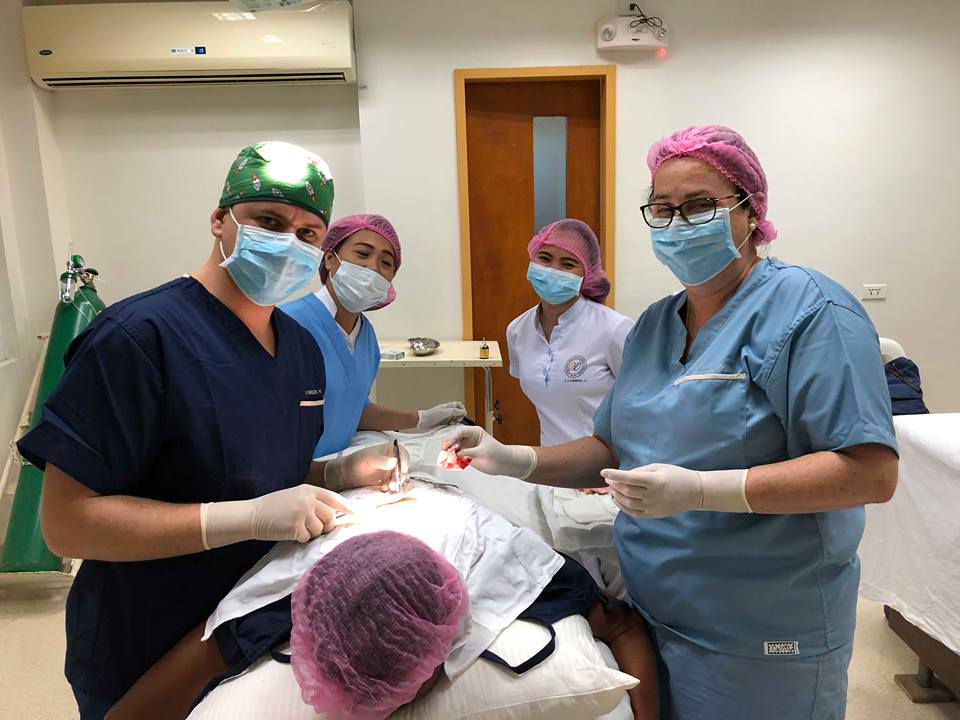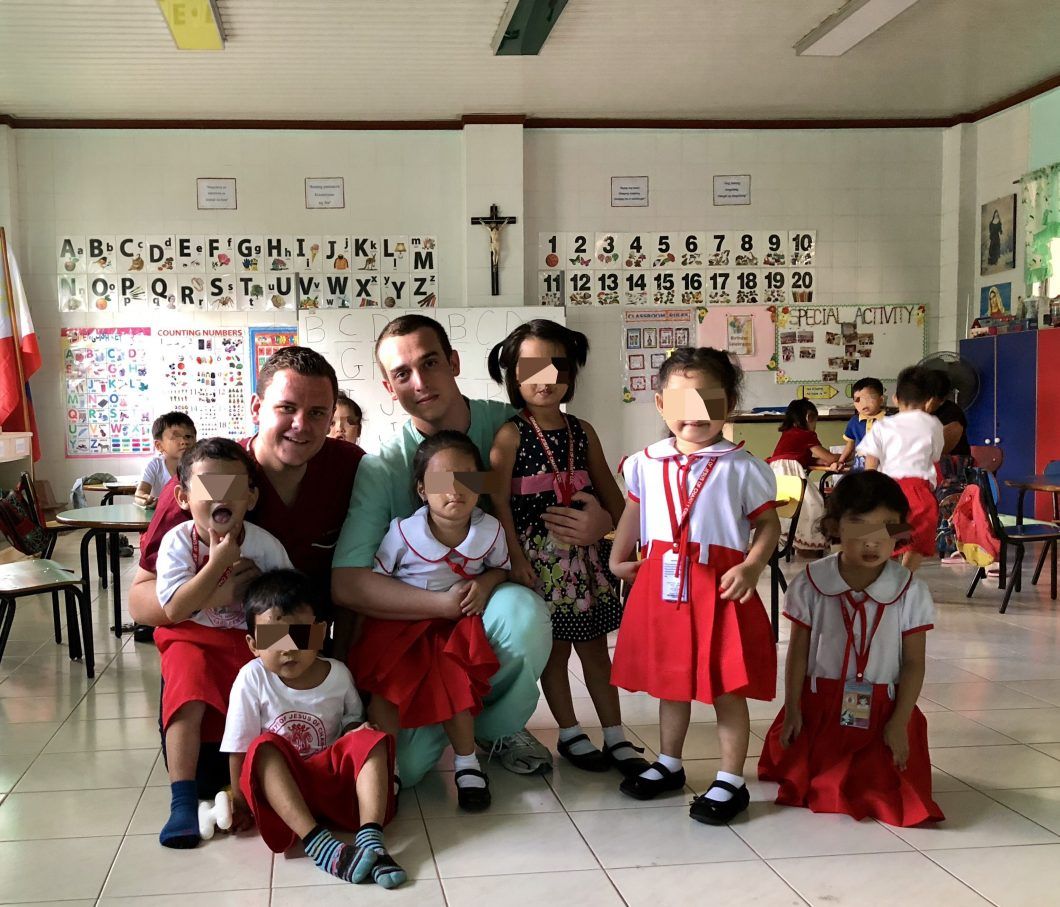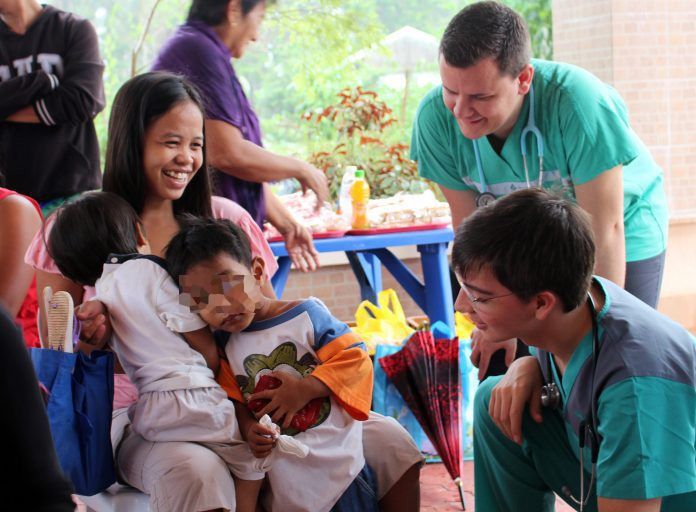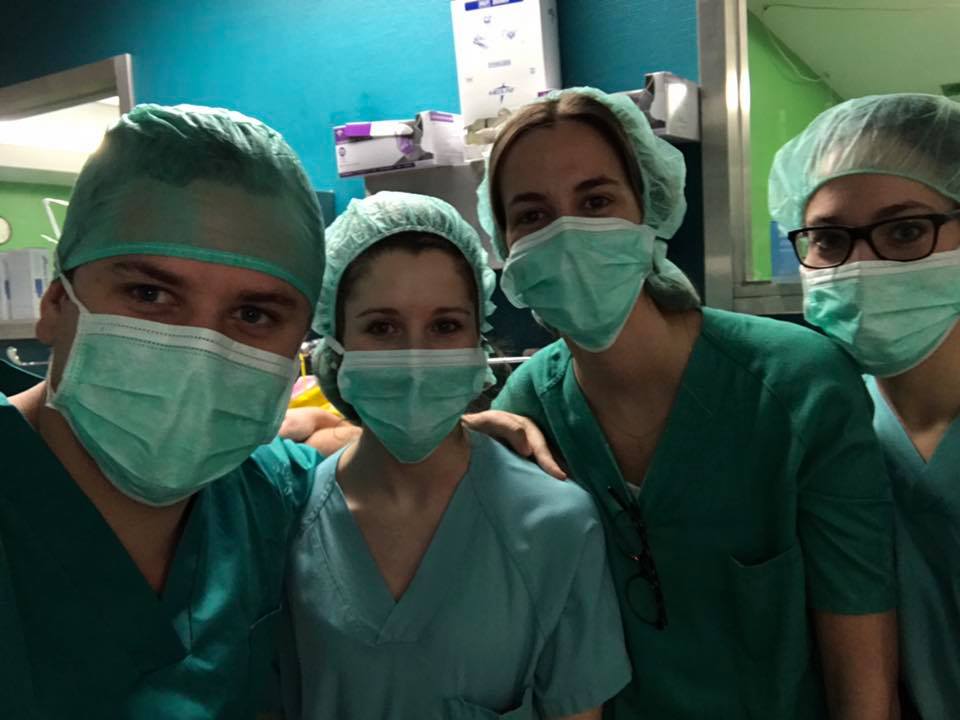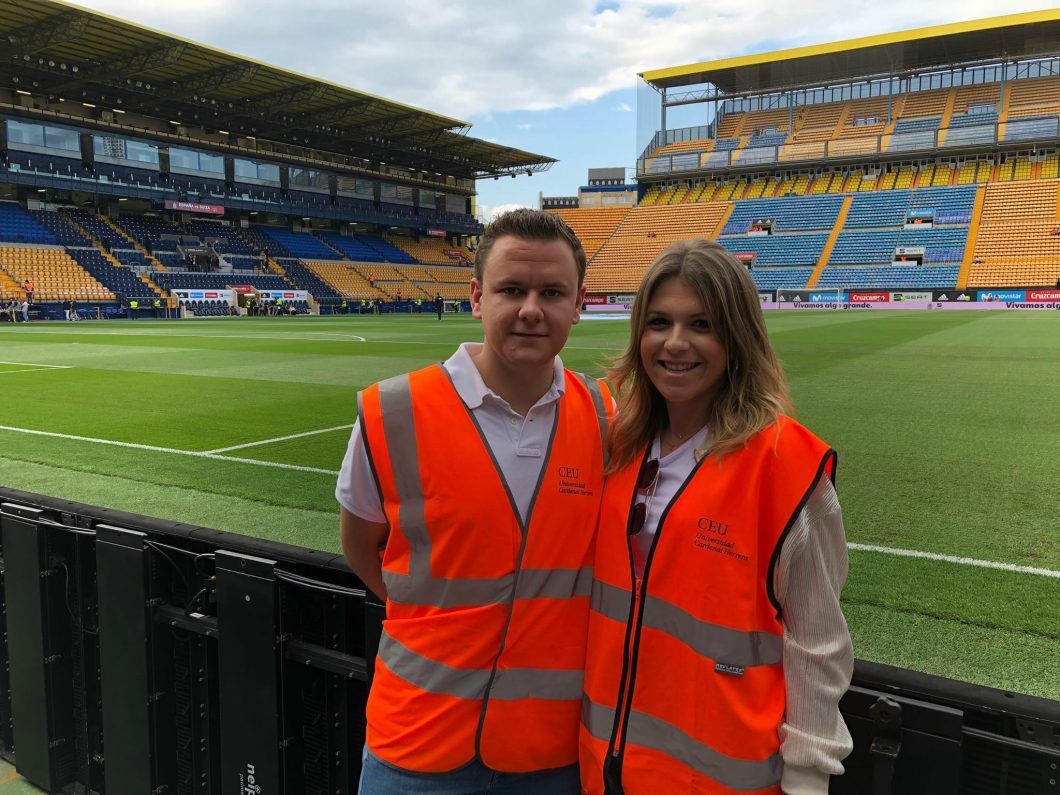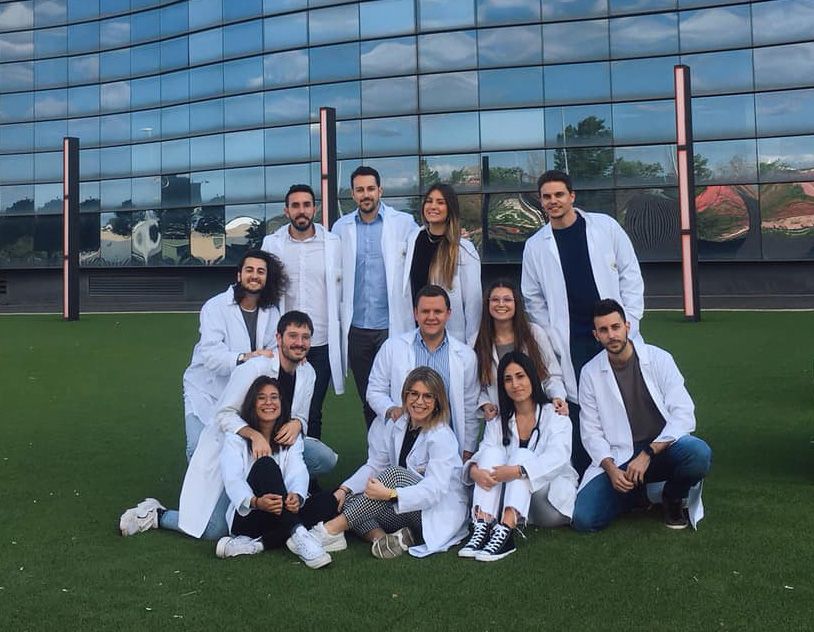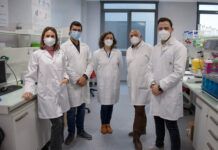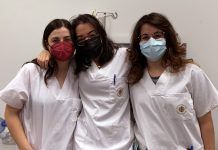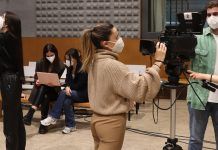Of all our alumni, this guy is a star. He was – and is – involved in everything: a student representative for his year-group, a member of the Medicine students’ association, a regular volunteer for Medipinas, the CEU humanitarian mission, and on and on. Now a specialty registrar, Valentín (“Valen”) Henarejos recently came back to CEU to talk to Health Sciences students about a healthcare app aimed at supporting volunteering missions, while also giving them a lot of useful advice to help them get the most out of this stage of their development
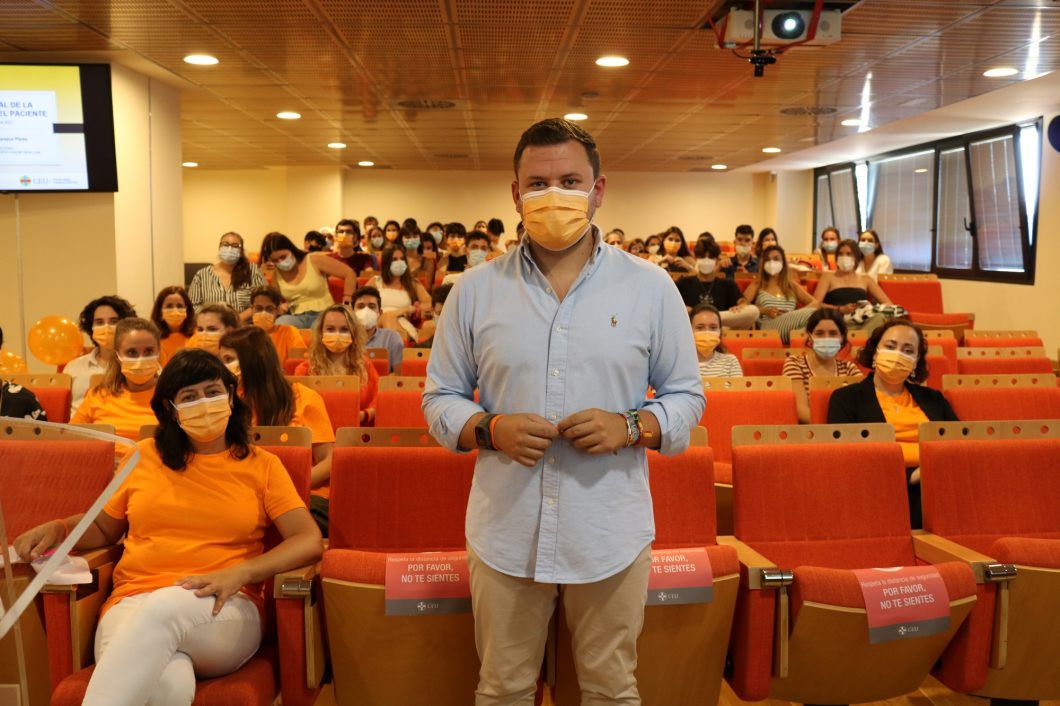
You came back to CEU a few days ago, this time as a guest speaker. How did it feel to be on the other side this time? There must have been a real rush of emotions and memories.
It certainly was a strange feeling to be back at the University, but as a doctor rather than a Medicine student. At the same time, so many good memories came back to me. To be able to see and speak to my lecturers, to see how the University has grown and developed in terms of facilities, student numbers, and even university atmosphere – all that was fantastic and really thrilling. It was a really special day for me.
“We must use technology to achieve the SDGs we have set and make the world that bit better”
It was special for us too. Valen, the reason for your visit was to show the students the app you’ve developed to minimize risk during surgical procedures during volunteering missions. Do you think technology can help everyone to live a healthy life – something which forms part of the United Nations’ 2030 Agenda.
I’m a great believer in technology and in using it in our daily lives. I think it can make our lives easier, within reason, and so I think there’s a lot of potential for the use of technology in the healthcare field, as it gives us a reach which was not possible or was very difficult before, as this app that we’ve developed for volunteering missions shows.
I also think that we have to ensure that technology works for us, rather than the other way around. And its effect must be felt everywhere in the world, rather than in just a few lucky places.
So, yes. As you said, we must use technology to achieve the Sustainable Development Goals, or SDGs, that we have set ourselves and, by doing so, make the world that bit better.
In fact, this app you’ve developed derives from the humanitarian work undertaken by the Medipinas team in the Philippines. You took part in this iconic CEU project, led by Dr Belén Merck, several times. What did you take from that experience?
A lot. I was so lucky, thanks to CEU, to be able to take part in four medical expeditions to the Philippines. I always say that Medipinas was a turning point in my medical training, and that it really has impacted upon the way I see my relationship with patients here in Spain, because of everything I saw and learnt out there. Medipinas confirmed my vocation and even strengthened it. That’s why I’ll always feel a debt of gratitude to the Philippines and its people.
We think we know the answer, but would you recommend taking part in the Medipinas missions to current CEU Medicine students?
Definitely. I think that taking part in a volunteering mission should be something every health sciences student does, or even students on any degree, because the experience teaches you values that you can never get just from attending lectures.
That’s why I would recommend that everyone find out about volunteering missions and put themselves forward for them. It’s something you’ll never regret doing.
“I think that taking part in a volunteering mission should be something everyone should do, because it teaches you values that you can never get from just attending lectures”
Let’s dig deeper into your experience at CEU. You also played an important part in university life while you were here, as the student representative for your year. What stands out for you from that experience?
As I said during my talk to the students, university is not about giving students an academic education, it’s about educating them as people. But they’re the ones who need to take advantage of the extra opportunities for development, by being getting involved in activities which form part of wider university life, rather than just focusing on lectures and academic activities.
My time as a year representative and as a member of the Medicine students’ association at the University gave me a more general and comprehensive vision of university education. Although there was hard work to do, I found the satisfaction of knowing I was working for my fellow students very rewarding.
As I see it, doctors must always have the attitude of being here to serve others, whether that’s as a doctor or in a wider sense.
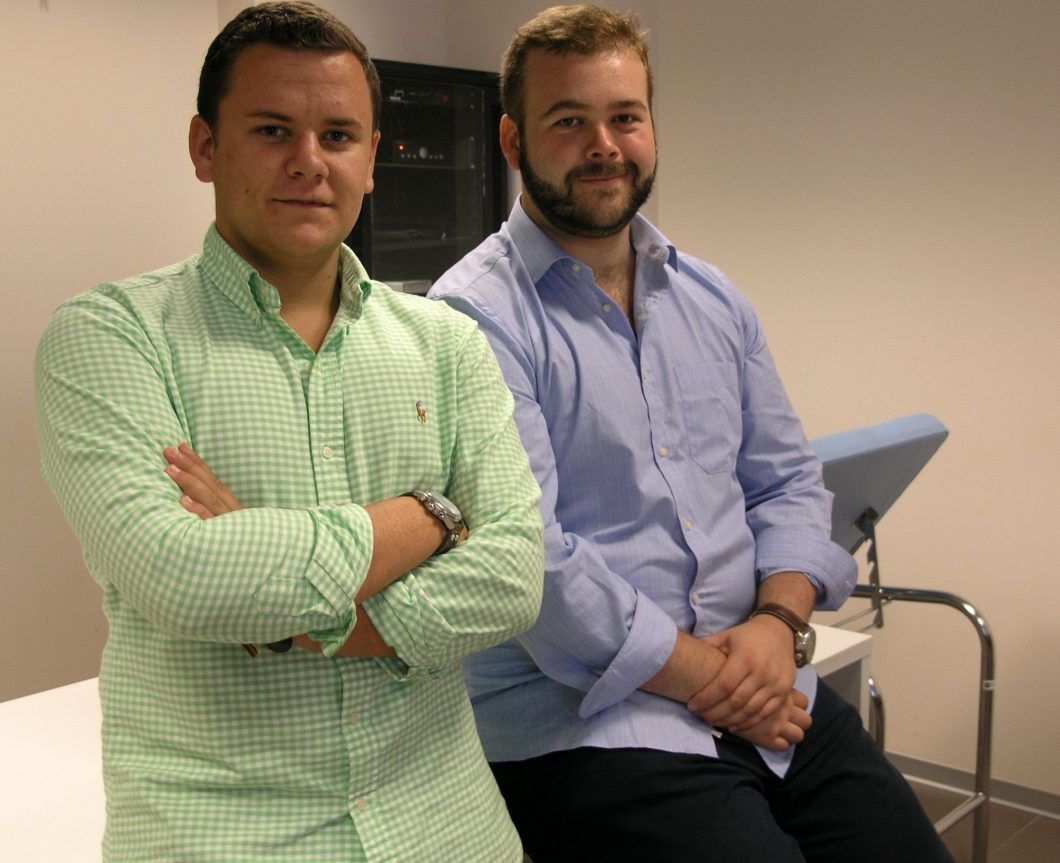
You have fond memories of that time, then?
Great memories. Now I always say that ‘if only the Medicine degree lasted longer’, although while you’re doing it you’d think that was a crazy thing to say. If they weren’t the best years of my life, then they were definitely some of the best.
You realize that you’re developing fast both as a person and as the medical professional you want to be – and that’s a great feeling.
“At the University you realize that you’re developing fast both as a person and as the medical professional you want to be”
Do you have any advice for students?
I have three pieces of advice. First, you should play an active role in university life, as I said.
Second, you should study as much as you can. There’ll always be a moment where something you have studied will come in useful at some stage of your medical career. Everything counts, although, equally, there’ll never be a time when you think you know everything. That’s something that you have to accept – you shouldn’t let it affect you and make you want to give up.
And finally, you should live and enjoy every moment at university to the full and not let how tough the degree can be get to you. There are definitely some difficult times, but you have to look at things in the long term. The best is always yet to come.
You’re a great example of how we can all achieve our goals through hard work and perseverance. Now you’re working as a médico residente (“specialty registrar”) at the Hospital Universitario Santa Lucía in Cartagena. Are you satisfied?
I see the medical profession as a mountain whose peak you never reach. It always seems to be close, but you never quite get there. You’ve got to be keep on learning and trying to get better. After you finish your degree, you begin your medical specialty training – so, you start climbing again and it’s a big challenge, but not an impossible one if you put the effort in. And so, once I passed the exam to start specialty training, the MIR, I chose to train in family and community medicine at this hospital.
But to answer your question, I couldn’t be happier with the training I’m receiving and how I’m developing and becoming the doctor I really want to be.
“The medical profession is a mountain whose peak you never quite reach. You’ve got to keep on learning and trying to get better”
Why did you choose this specialty and when?
For me, family and community medicine is the specialty which gives me the chance to see the patient, not just from the point of view of disease, but from all angles. Thessalonians 5:23 talks about “the whole spirit, soul and body” and that’s what a doctor must treat, the whole, not just a part of it.
I think my vocation for serving others was there before I wanted to be a doctor, but that’s what led me to choose this profession as my future – and here I am. The fact is that no-one in my family specifically encouraged me to be a doctor, even though we’ve always had links with the healthcare world.
I know that I’m studying and working, now and in the future, to be able to do the very best for my patients. Maybe what they will need is so much me as a doctor, but as a person who will listen to them. I try to listen and learn every day so I can see what each patient really needs and then I can address those needs in the most humane way possible.
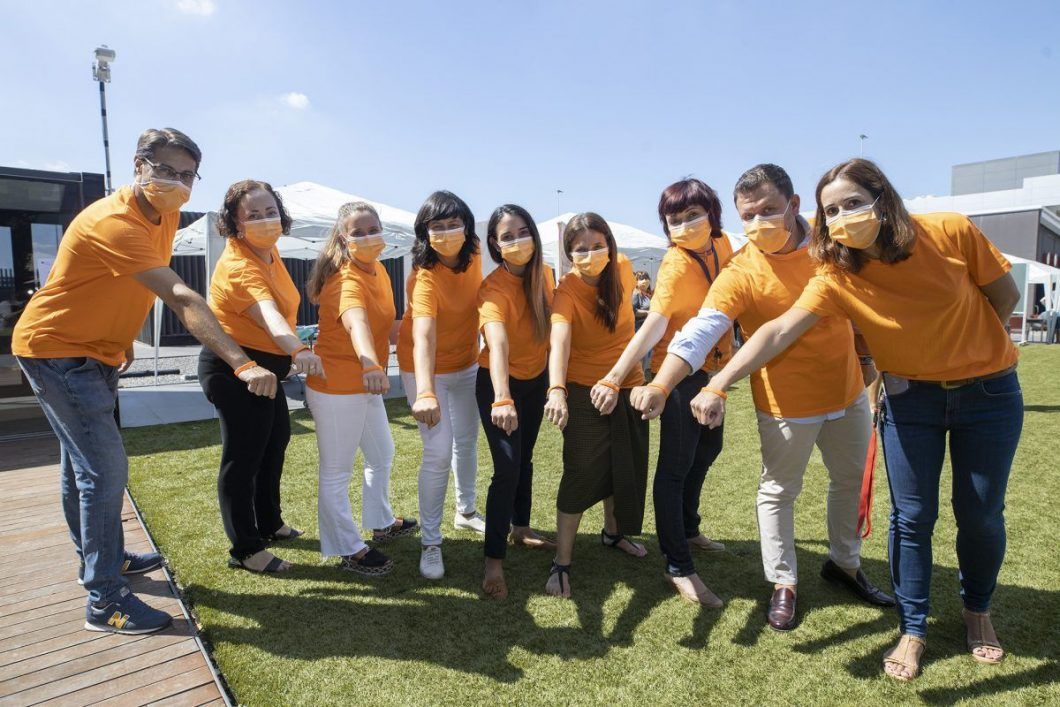
Always thinking about the patient. But what about your own goals and plans for the future, Valentín?
Right now, I know what I want: to learn as much as I can during my specialty training and take in as much medical knowledge as possible. You should always set yourself ambitious targets, and right now emergency medicine is the area I’m most interested in, although I’d also like to work in health management and emergencies in the future. I think that our healthcare system is one of the best in the world, but there’s also a lot of room for improvement. That’s something we can address from the inside and I’d love to be able to contribute to that.
Advice for students: “You should enjoy every moment at the University. There are some difficult times, but you have to look at things in the long term. The best is always yet to come”
We wish you every success for the future. Anything else you’d like to share with the CEU community?
I’d like to finish the interview with a verse which for me sums up what the role of a doctor should be: “For I was hungry and you gave me food, I was thirsty and you gave me drink, a stranger and you welcomed me, naked and you clothed me, ill and you cared for me, in prison and you visited me.” (Matthew 25, 35-36)
Thank you and we hope to see you again soon.
I’d love that. And thank you.


